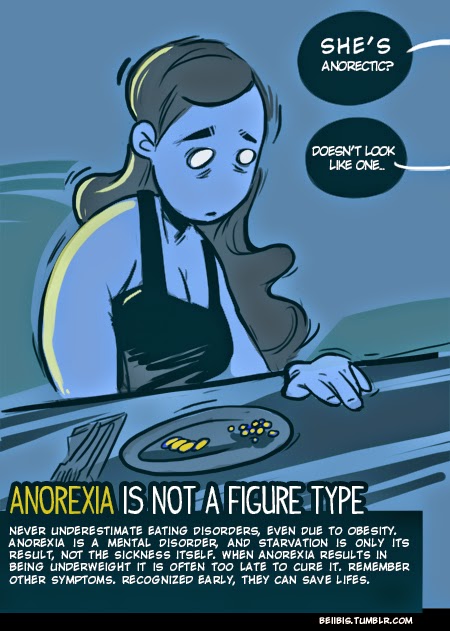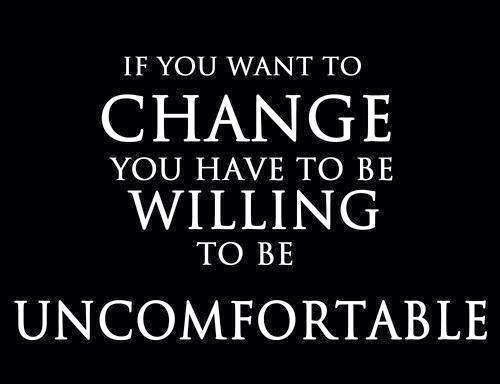As a person
recovering from childhood abuse, I read many books about the subject matter.
Right now, I’m reading some books from abuse therapist, Lundy Bancroft. It’s
been an eye opener. Growing up with a verbally and emotionally abusive dad, I
thought I had an understanding about how subtle abusers can be.
Not quite.
For much of
my childhood, I struggled to have the reality of my abuse validated. My mother,
herself, a survivor of her father’s physical abuse, repeatedly told me things
like, “At least he doesn’t beat us” whenever I challenged the torture of the
verbal and emotional warfare going on. I felt belittled and filled with
self-doubt. I wasn’t sure if what I experienced was really “that bad” after
all.
It was; it is.
Emotional,
mental and verbal kinds of abuse are all real. And they’re all damaging. And,
part of the confusion and pain lies in detangling the standing argument, “if he
doesn’t lay a hand on mother and children, there’s no abuse going on.”
But it’s not
just about the outward physical expression of a hit or a punch, so much as it
is a mindset, an attitude, a belief system.
Indeed,
Bancroft even states abuse happens not because the abuser’s angry, but rather
because abuser is abusive. Because
he’s abusive, he’s angry. But anger is not the reason for the harm to occur. Everyone
gets angry; however, not everyone is an abuser.
The abuse
mindset is fraught with a value system of entitlement/superiority, blurred
boundaries, an obsession to control and fault finding. Through this prism, the
abuser “decides” it is his right- and only
his right- to do whatever he
deems necessary to rule and reign and to ultimately, oppress.
Hence,
tactics like verbal abuse.
“The tongue has the
power of life and death and those who love it will eat its fruit.”
Proverbs 18: 21
Sarcasm, threats, insults and misogyny are a
few of those avenues.
The purpose
is not only to control the individual, but also to remove any sense of self,
identity of value of that particular family member. I experienced it; my mother
did as well from my dad’s words. We were never good enough. We were always at
fault for whatever went wrong, either inside or outside of the house.
Indeed,
according to the abuser, wife and children are viewed as having no more value
to him than a slave to his master. And abuse is slavery because it’s about oppression; it’s about ruling, not
loving the family members for who they uniquely are.
And that
abusive mindset dictates all manner of abuse, control and power issues. Emotional
and mental abuse, while never showing physical marks of bruises, cuts or broken
bones, nevertheless, manifests itself in the uncertain, constant dread of hell
coming down at any given moment. It’s the threatening undercurrent of “things
are going to explode and we’re helpless to stop it from happening.”
And that’s
usually where the subtle abusive tactics really flourish. It can be a facial
expression, a gesture, taking car keys away or failing to come through on an
anticipated promise. The core attitude appears to be “I’m going to punish you
because I’m allowed to.” It exists because the abuser, in his mind, is the only one designated and qualified
to do so. Only he is allowed anger
and feelings, especially if they’re negative. Only his wants and needs are valid. Only he is allowed to get what he wants. And there’s hell to pay if
those realities don’t happen to his specifications.
This is
emotionally, verbally, mentally, physically and spiritually abusive. Rife with
double standards, no thought concerning personal responsibility or other family
members’ feelings, it is carte blanche for the abuser to act any way he feels
like acting. That’s abusive.
Bancroft
makes a great point in mentioning if anyone
is in doubt as to whether he/she is or was abused, the mere fact of wondering points to its validity. Human
beings, on instinct, know whether or not something is really wrong.
Unfortunately, public opinion, status, mixed messages and negative family
attitudes can challenge and muddy those on target instincts. If you have to
wonder if your situation was harmful, more than likely, it probably was. Don’t just
look to the obvious signs of abuse
only, look for the subtleties. Look for the tone, the unspoken word, the
feeling of dread. Pay attention to that.
Beth J. Lueders has further information about
these more subtle forms of abuse. Please be honest with what you encounter;
please pay attention to the signs. And please get help.
Emotional and Verbal Abuse
by Beth J. Lueders
Emotional Abuse
Emotional abuse is difficult to
define and many cases are never reported; nevertheless, it's clear that this
form of destructive behavior is based on power and control. An emotionally
abusive person may dismiss your feelings and needs, expect you to perform
humiliating or unpleasant tasks, manipulate you into feeling guilty for trivial
things, belittle your outside support system or blame you for unfortunate
circumstances in his or her life. Jealousy, possessiveness and mistrust
characterize an emotionally abusive person. Widely recognized signs of
emotional abuse include:
Rejecting or denying a person's value or presence and communicating
devaluing thoughts and feelings to another person.
Degrading, ridiculing, insulting or name-calling to lessen the self-worth and
dignity of another person. Examples include humiliating someone in public or
responding to a senior as if he or she is not capable of making decisions.
Terrorizing by inducing intense fear in someone; intimidating and coercing;
or threatening physical harm to a person or a person's loved ones, pets or
possessions. Stalking, threatening to leave and forcing someone to watch
violence toward a family member are all types of terrorizing.
Isolating, physically confining or limiting another's freedoms. These
restricting behaviors include denying a person contact with others and
controlling someone else's financial affairs.
Exploiting someone's personal rights and social needs or using another
person for profit or advantage. Enticing someone into illegal activities for
financial gain (drug selling, prostitution) is an example of exploitation.
Detaching and denying emotional care or affection. Shunning a person's
efforts to interact or neglecting someone's mental health needs are forms of
this type of psychological abuse.1Although
emotional abuse can occur on its own, all types of abuse involve some form of
emotional abuse. Similar to other forms of relationship violence, emotional
abuse happens most often to individuals with the least power and resources.
Over time emotional abuse brainwashes the victim. According to the National
Coalition Against Domestic Violence, it is clear that for many, emotional abuse
is even more devastating than physical abuse.
Emotional abuse tears at a
person's self-esteem and can greatly impair psychological development and
social interaction. In children, emotional abuse can hinder attention,
intelligence, memory and the ability to feel and express emotions
appropriately. For both children and adults, emotional abuse can manifest
itself in social withdrawal, severe anxiety, fearfulness, depression, physical
complaints, avoidance of eye contact, self-blame and substance abuse.
Emotionally abused seniors may feel extreme guilt, inadequacy, depression or
powerlessness. Unfortunately, many psychologically abused elderly people are
labeled "senile" or "inept."
Because emotional abuse is not as
regularly reported as other forms of violence, statistics are sparse. A
Canadian study on abuse in university and college dating relationships revealed
that 81 percent of male respondents admitted they had psychologically abused a
female partner.2 According to a 2000 report by the
National Institute of Justice, an estimated 503,485 women are stalked each year
in the United States. Emotional abuse is a worldwide problem for people of any
age and any sex.3
Verbal abuse
The well-worn chant, "Sticks
and stones may break my bones, but words can never hurt me" is just not
true. As Dr. Grace Kettering writes in her book Verbal Abuse, "Cruel names
and labels can hurt us — dreadfully! Many times the emotional damage is
unintentional. Crippling comments may seem so trivial to the speaker as to be
soon forgotten. But at a crucial moment or from an important person, certain
words spoken to a vulnerable, receptive individual can make or break a
life."
Verbal abuse takes on many forms
including criticizing, insulting, degrading, harsh scolding, name-calling,
nagging, threatening, ridiculing, belittling, trivializing, screaming, ranting,
racial slurring and using crude or foul language. Disparaging comments
disguised as jokes and withholding communication are also examples of verbal
abuse.
Hurling hurtful words at another
may sound like: "You're a nag just like your parents!" "You
don't know how to do anything right." "It's your fault!"
"You're too sensitive." "Come on, can't you take a joke?"
"That outfit makes you look fat." "You're worthless in
bed." "Who asked you?" "You don't need that second
helping." "All you do anymore is go to church stuff." "Your
ex sure screwed you up emotionally." Verbal abuse can happen anywhere, at
any time. Individuals who are teased and pressured at work or school may in
turn take out their pent-up frustrations at home. "Kicking the dog"
is not enough; instead, they verbally attack their spouse, children, parents,
close friends — no loved one is safe.
Wounds that typically accompany
emotional, physical and sexual abuse must not be ignored. Both men and women
inflict verbal abuse, but women tend to be more often on the receiving end of
this destructive behavior. What may seem innocent and infrequent at first can
escalate. Verbal abuse frequently plays a major role in violent crimes.
According to a 1998 U.S. Justice Department report on violent crimes, women are
five to eight times more likely than men to be victimized by an intimate
partner.4
All forms of abuse follow a
pattern that, left unchecked, will only increase over time. Injuries from
verbal and emotional abuse can run deep and leave lasting scars. Many
emotionally and verbally abused people reason that, because there are no
bruises or broken bones, their abuse must not be serious. But it is.
Fortunately, support and resources are readily available to guide individuals
into safe, loving relationships. In their well-received book Boundaries,
Drs. Henry Cloud and John Townsend state that, "Our pain motivates us to
act." If pain motivates you to act against emotional and verbal abuse,
then listen and act. You may be saving more than your life.
1
The National Domestic Violence Hotline, http://www.ndvh.org/
2
Ibid.
3
Ibid.
4
Ibid.
Copyright © 2002 Beth J. Lueders. Used by permission.
God never wants you abused in any way! He
loves you and has blessings for you instead:
“The LORD hath appeared of old unto
me, saying, Yea, I have loved thee with an everlasting love: therefore with
lovingkindness have I drawn thee.”
Jeremiah
31:3
“For I know the thoughts that I think toward you, says the
Lord, thoughts of peace and not of evil, to give you a future and a hope.”
Jeremiah 29:11
Copyright © 2014 by
Sheryle Cruse





























